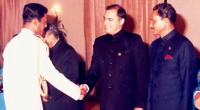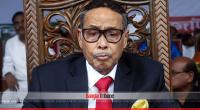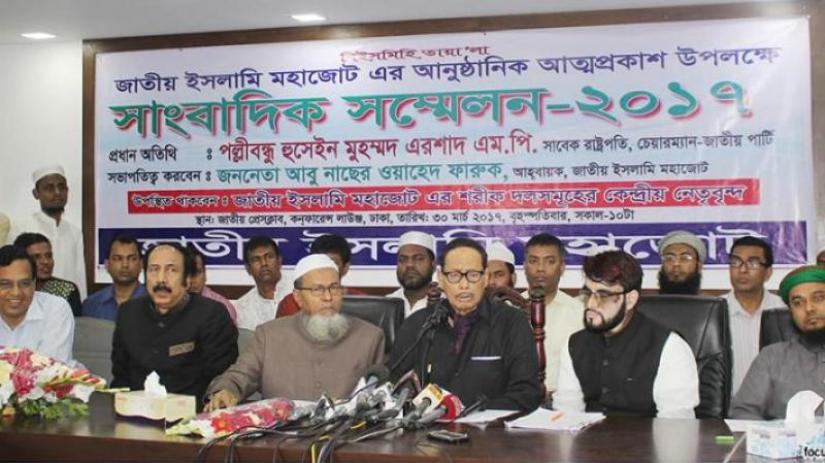 Ershad made Islam the state religion and also made Friday, the weekly holiday. He built mosques across the country and waived power bills for mosques. He was a disciple to many religious gurus, popularly known as pirs but despite using religion to the hilt, he could not lure Islamic parties.
Ershad made Islam the state religion and also made Friday, the weekly holiday. He built mosques across the country and waived power bills for mosques. He was a disciple to many religious gurus, popularly known as pirs but despite using religion to the hilt, he could not lure Islamic parties.
Mufti Muhammad Wakkas was the imam of a mosque in Jessore and thanks to Ershad, became state minister for religion. After Ershad’s fall, he joined Jamiat Ulama-e-Islam and now is chairman of one of its factions.
Mufti Wakkas says: “I was with Ershad from 1986 to 1990 and joined Jatiya Party after winning as an independent candidate. But my main party was Jamaat and later, I came back to it.”
Ershad liked me and offered two hundred thousand taka to join the party which I declined; Ershad has done many development work in Bangladesh, he commented.
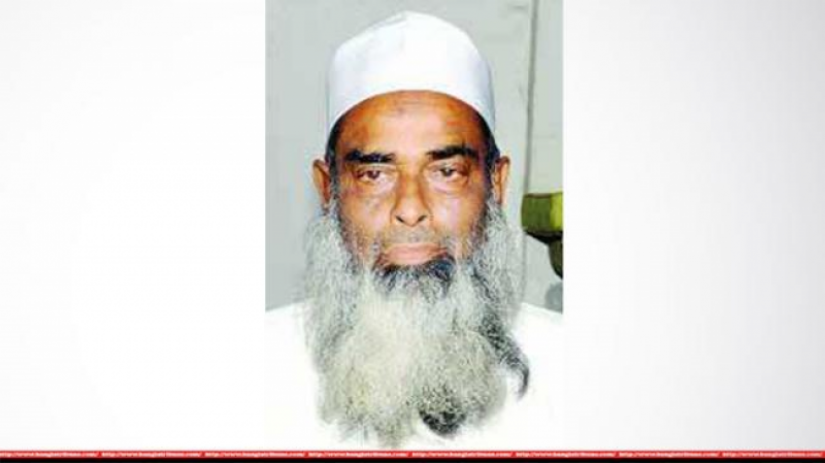 At the 11th national election, Ershad took part as part of an alliance which included Bangladesh Khelafat Majlis, founded by Shaikhul Hadith Allama Azizul Haque.
At the 11th national election, Ershad took part as part of an alliance which included Bangladesh Khelafat Majlis, founded by Shaikhul Hadith Allama Azizul Haque.
Secretary general of Bangladesh Khelafat Majlis, Maulana Mahfuzul Haque, says: “we joined Ershad for the election but the pact has lost efficacy after election; Ershad made Friday a national holiday and built mosques but he was restless and fickle, changing his decision frequently. This is why Muslim parties could not rely on him.”
The 8th amendment bill to make Islam the state religion was approved on May 11, 1988 and it passed on Jun 7 with votes from 254 MPs.
BNP called a general strike to protest the making of Islam the state religion on June 11 and Sheikh Hasina also censured this move.
In his autobiography: My work, my life, Ershad says: “I realised that to prevent erosion of moral values the progeny should grow up as true Muslims and Islam has to be established at all spheres.”
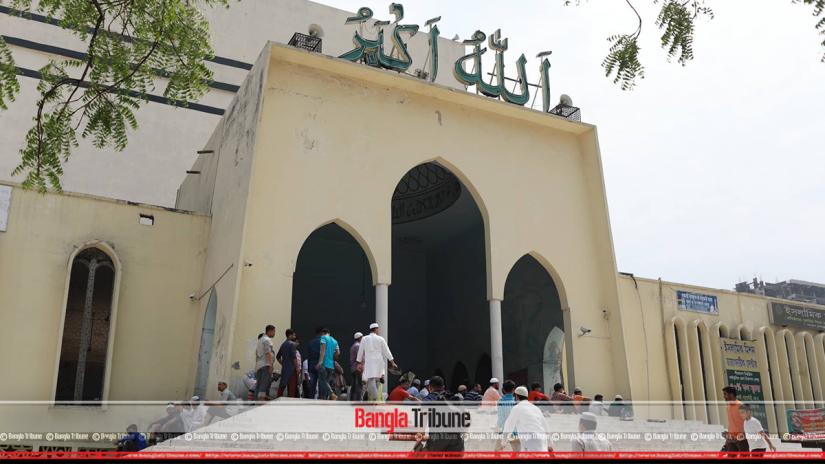 Ershad also declared Baitul Mokarram as the national mosque and when in power, used to take his Friday prayers at different mosques. In 1983, he waived all water and power bills of mosques.
Ershad also declared Baitul Mokarram as the national mosque and when in power, used to take his Friday prayers at different mosques. In 1983, he waived all water and power bills of mosques.
In 1985, Dakhil and Alim exams of Alia madrassa were declared equivalent to SSC and HSC respectively. The broadcasting of Azaan or call on TV and radio began during his tenure.
His government also made religious studies mandatory till class ten.
While serving as president, Ershad was a regular at the shrine of Atroshi, Sadarpur, Faridpur and Sarsina in Pirojpur.
Both these religious places are controversial; Maolana Abu Zafar Saleh of Sarsina was against Bangladesh's independence.
During liberation war, Sarsina arranged training of Razakar and Al Badar collaborators.
After liberation, Abu Zafar Saleh was arrested under the collaborators act though a later government pardoned him.
Atroshi religious congregation was established by Maulana Hashmatullah Faridpuri. Maulana Mahfuzul Haque says: “the religious scholars of Atroshi did not approve of Ershad’s visits because he never called them and asked for their advice on anything.”
In his autobiography, Ershad writes: “during my nine years in power, I visited mosques in and outside the city and took Friday prayers with the people; many did not approve of my efforts to establish Islamic values and some even branded me as a bigoted Islamist.
People also accused me of using religion for political gain but I believe that a respectful attitude to religion is not bigotry.”
During Ershad’s regime, Maulana Abdul Latif Nezami took part in anti-Ershad movement. He is now chairman of the Nezame Islam Party. He says: “while in power Ershad did some religious work and he did these of his own volition and not on the counsel of other religious scholars.”
In this country, to remain popular, one has to carry out religion based work; all parties do this and before vote representatives of all parties went/go to shines to seek divine blessings, he observed.
Professor Anwar Hossain adds: “Bangladesh is a non sectarian, secular state but Ershad made Islam the state religion; this is such a delicate matter that changing it is difficult. Even AL has carried out several reforms in this to adopt a secular stance. Now constitution is self-contradictory.
Also read:
Ershad’s death: View from India

